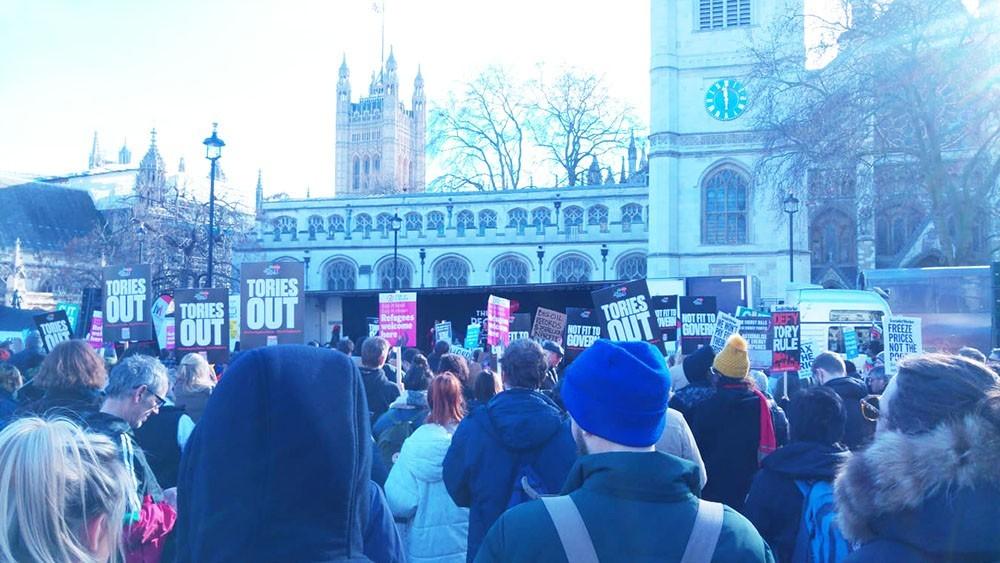
Austerity Protests highlight costs of fossil fuels
Protests in more than 26 towns and cities up and down the country on 12th February at the growing cost of living squeeze should hasten the shift away from fossil fuel dependency. A 250% increase in the wholesale price of gas makes a shift to renewable energy even more of an imperative.
The perverse argument of the Net Zero Scrutiny Group – a tiny sect of just 19 Tory MPs who have nevertheless been given an inordinate media platform in recent weeks – that high gas prices mean we can’t afford to transition away from gas and that “green levies” should be cut from bills has a big problem. The last time a Tory government did that, the ensuing collapse in insulation and solar panel installation not only cost jobs but has led to current energy bills being £2.5 billion a year higher than they would have been had previous trends been allowed to continue. Their concern here seems to be more to do with slowing down the transition than taking any practical measures to reduce bills with a windfall tax on energy producers or a reduction in VAT on domestic bills, both of which they are against. The £14 billion profits made by Shell and the £9.4 billion made by BP are sacrosanct for them.
AS Chris Stark, head of the Climate Change Committee is now pointing out, the problem is that the transition is not going fast enough. Home insulation reduces energy use and therefore bills (and carbon emissions). But, at the current rate of home insulation, just 50,000 a year, the UK will have got all its 19 million leaky, cold and damp old housing stock up to scratch by the year 2402 – by which time quite a lot of them will be under water, other things being equal.
Paul Atkin
Further protest will take place around the UK on Saturday 5th March and Saturday 2nd April. For details see the People’s Assembly site.
Photo Mona Moussa
